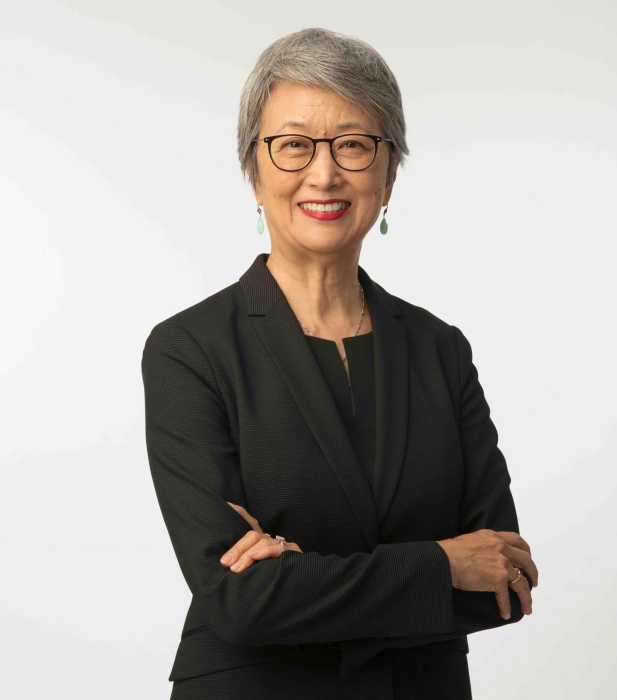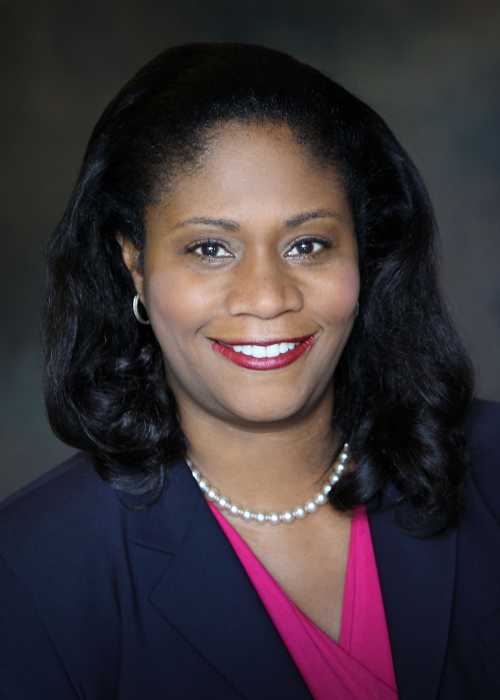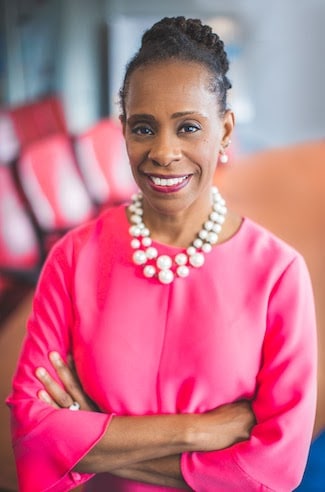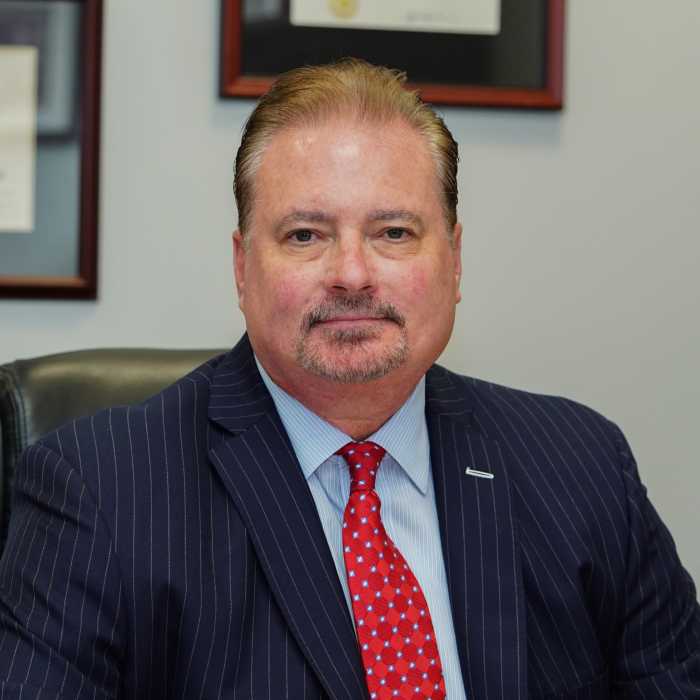Gerard “Jerry” Walsh joined St. John’s Episcopal Hospital (SJEH) as Chief Executive Officer in late 2015 and has nearly 40 years of health care leadership experience, a depth of expertise in organizational change, physician development and implementation of quality and patient safety programs, mergers and acquisitions and a strong knowledge of community hospitals. Under Mr. Walsh’s leadership, the hospital is managing more than $40 million of philanthropy funds—most of which was awarded through grants—to go towards a new radiation oncology center, a new women’s health center, a new outpatient services/Teaching Center, and the renovation and expansion of the hospital’s emergency department.

Pat Wang
President and CEO, Healthfirst

Pat Wang has dedicated her career to championing the health care needs of vulnerable New Yorkers. While working at the Greater New York Hospital Association in 1993, Ms. Wang helped to create Healthfirst based on a pioneering value-based model that aligns payments for care delivery to the quality of care provided.
Ms. Wang joined Healthfirst in 2008. Today, the company is one of the largest not-for-profit health insurers in America, while maintaining its regional focus on serving New Yorkers. Ms. Wang is proud to lead more than 5,000 employees who focus on providing excellent health insurance to more than 1.8 million New Yorkers, including one-third of New York City’s Medicaid population, in close collaboration with the company’s valued provider partners in the community and health systems.
Ms. Wang maintains an active voice in health care policy. She served as a commissioner on the Medicare Payment Advisory Commission from 2016 through 2022, is a member of the Federal Reserve Bank Second District Community Advisory Board, and is a trustee of the Citizens Budget Commission, America’s Health Insurance Plans, and the New York Health Plan Association. She also served as a member of the Medicaid Redesign Team II.
Ms. Wang is a graduate of Princeton University and of New York University School of Law. She has lived in Yugoslavia, Taiwan, and China and is a longtime resident of New York City.
Kristine Wheeler
Director of the Bureau of Water Supply Protection, New York State Department of Health
Kristine Wheeler serves as the director of the New York State Department of Health Bureau of Water Supply Protection, where she oversees the implementation of the drinking water regulatory program for New York State. Ms. Wheeler has spent 18 years with the Department of Health and has over 20 years of experience in civil engineering in both the private and public sector. She is a licensed professional engineer and received her civil engineering degree from Clarkson University.

Wendy Wilcox
Chief Women’s Health Officer, NYC Health + Hospitals

Dr. Wendy Wilcox is the chief women’s health officer for NYC Health + Hospitals. As a board-certified obstetrician gynecologist, she is responsible for leading NYC Health + Hospitals’ efforts to improve care delivery and quality to meet the needs of women who seek care with NYC Health + Hospitals. She co-chaired the New York State task force on Maternal Mortality and Disparate Racial Outcomes and is currently co-chair of the Brooklyn Borough President Maternal Mortality Task Force.
Why did you decide to pursue a career in health care?
I cannot really remember a time when I didn’t want to be a doctor. I had a doctor play kit as a child and used to practice on my dolls, helping them feel better. In college, I became a Women’s Peer Counselor and that is when I realized that women’s health was a nice intersection between causes I was passionate about and my professional interests.
What is the biggest challenge currently facing New York’s health care system?
I believe one of the biggest challenges facing New York’s health care system is the shortage of mental health professionals. The pandemic highlighted how important mental health is to all segments of society. In women’s health, we know mental health plays an important role throughout the life cycle, especially during pregnancy and postpartum. This is why we started the Maternal Home, to help our patients during one of the most important times of their lives.
How can New York State ensure access to affordable health care?
The mission of NYC Health + Hospitals mission is to extend comprehensive women’s health services of the highest quality to all New Yorkers, regardless of economic or immigration status in an atmosphere of humane care and with dignity and respect. We provide safe, patient-centered, equitable care to all women and non-binary patients who seek care. With funding, I believe this mission can be extended to provide a safety net to all New Yorkers.
What does the future of health care look like?
While the SCOTUS decision to repeal Roe v. Wade has set off alarm bells, I believe New York is setting an example for the rest of the country by enacting several new health care provisions. Protecting access to abortion care is one of the most important measures New York has taken to protect health care access. Another measure is extending reimbursement for postpartum care up to one year after birth and expansion of behavioral health resources.

Anne Williams-Isom
Deputy Mayor for Health and Human Services, New York City Office of the Mayor

Anne Williams-Isom is New York City deputy mayor for health and human services. She is an experienced leader and practitioner previously serving as CEO of Harlem Children’s Zone, as an associate commissioner at the New York City Administration for Children’s Services, and as a corporate lawyer. Immediately prior to joining the Adams Administration she served as a professor at Fordham’s Graduate School of Social Services. She holds a JD from Columbia Law School and a doctorate in Ministry from New York Theological Seminary.
Why did you decide to pursue a career in health care?
I have always worked to elevate the voices of children and families, create systems to act as protective factors for them, and make people’s lives more equitable. This has prepared me to meet the moment with health issues facing the city, from COVID to monkeypox to chronic disease and so much in between. Now, too, I am fighting to better the lives of my fellow New Yorkers, with an eye on justice and equity.
What is the biggest challenge currently facing New York’s health care system?
We have present and future concerns, from COVID to monkeypox to polio, and diet/lifestyle related chronic diseases. We must continue to meet current crises with a lens toward equity and put forth interventions to mitigate longstanding inequities in the burden of chronic diseases facing New Yorkers. We are making strides with healthier food in schools, in our hospitals, and with clinical and non-clinical interventions to promote healthier lifestyle habits across the lifespan.
How can New York State ensure access to affordable health care?
We must work together with the state to ensure access to supportive health care services for every person. NYC Health + Hospitals has a program, NYC Cares, where people who do not qualify for Medicare/Medicaid can pay on a sliding scale and have access to a primary care provider. This is open to everyone regardless of their ability to pay or immigration status. We must work to make programs like this one better utilized.
What does the future of health care look like?
When we zoom out a bit, the vast majority of health care spending is on diet-related chronic diseases such as type 2 diabetes and heart disease. Further, type 2 diabetes is one of the leading causes of blindness in America. NYC is no different. The future must put a focus on Lifestyle Medicine interventions including a plant-predominant diet, physical activity, stress management, social support, restorative sleep, and the reduction of risky substances such as tobacco.
Eva Wong
Director, New York City Mayor’s Office of Community Mental Health
Eva Wong was appointed to lead the Office of Community Mental Health in July 2022. To the role of director Ms. Wong brings over 15 years of experience in clinical services, program management, community development, and crisis intervention. She leads OCMH in its partnerships with other city agencies and nonprofit organizations to equitably promote mental wellness, crisis prevention and intervention, and mental health care resources to all New Yorkers, with a special emphasis on under-resourced communities.






